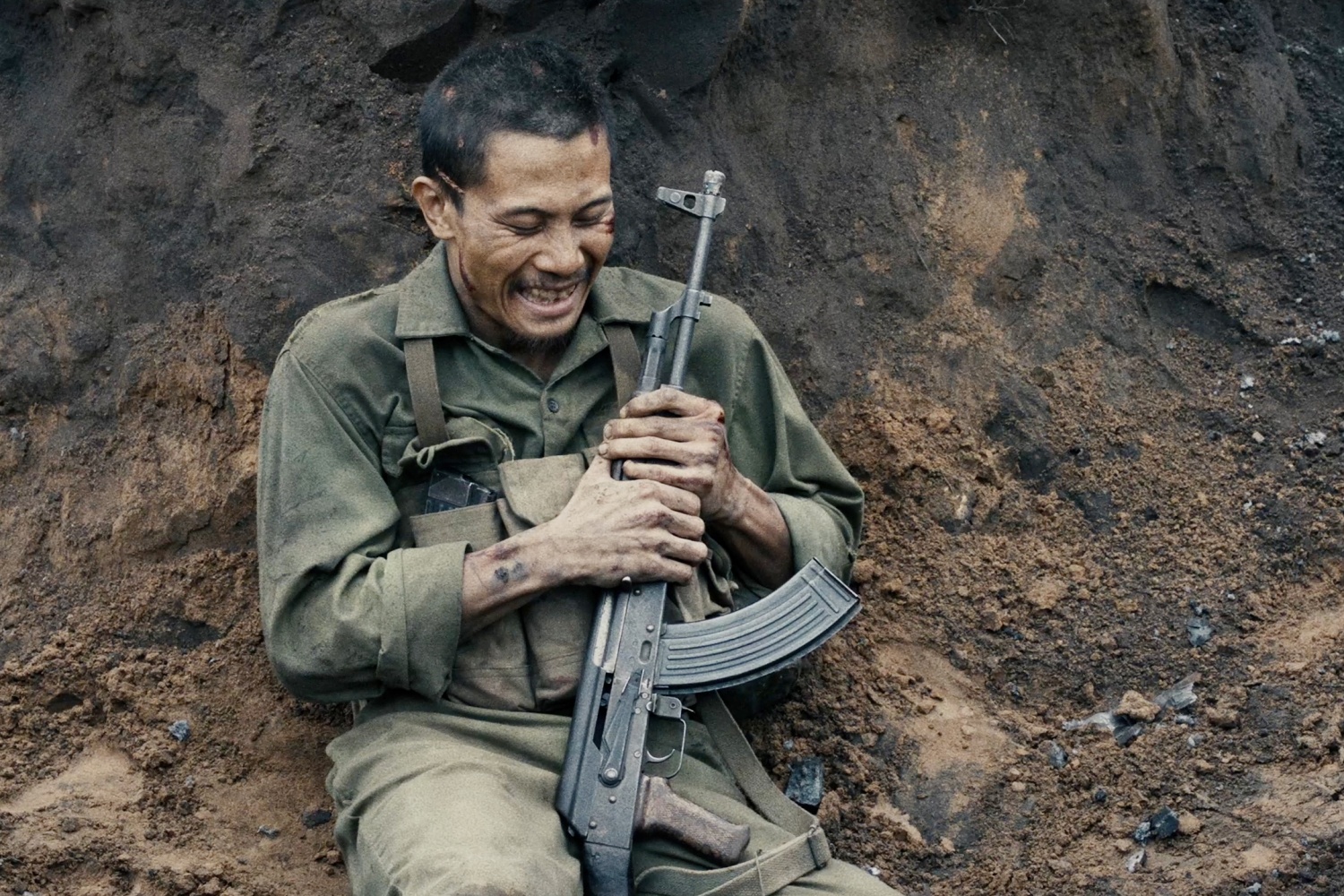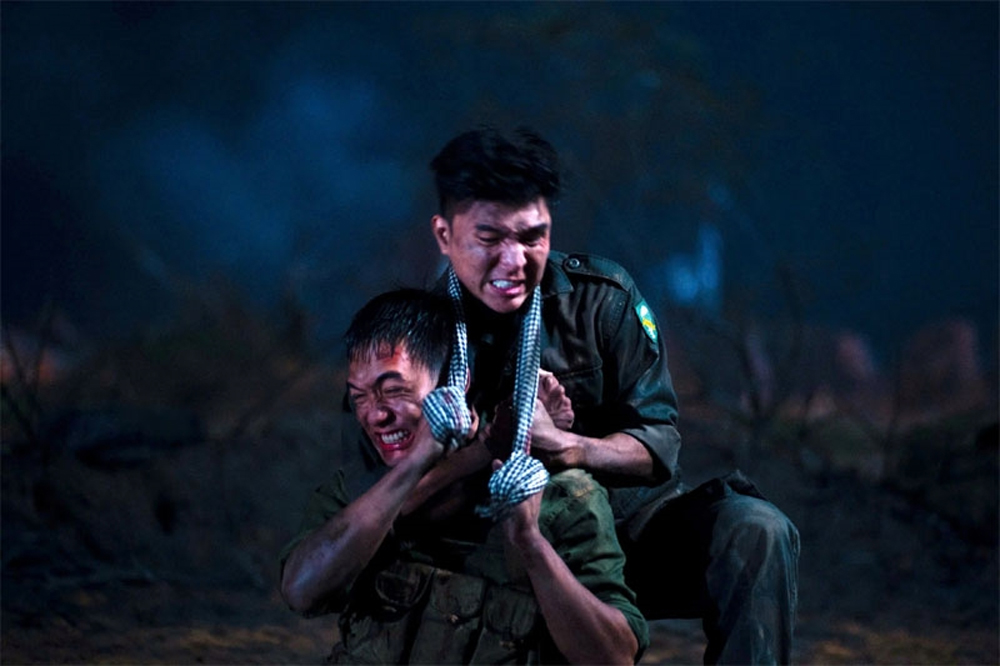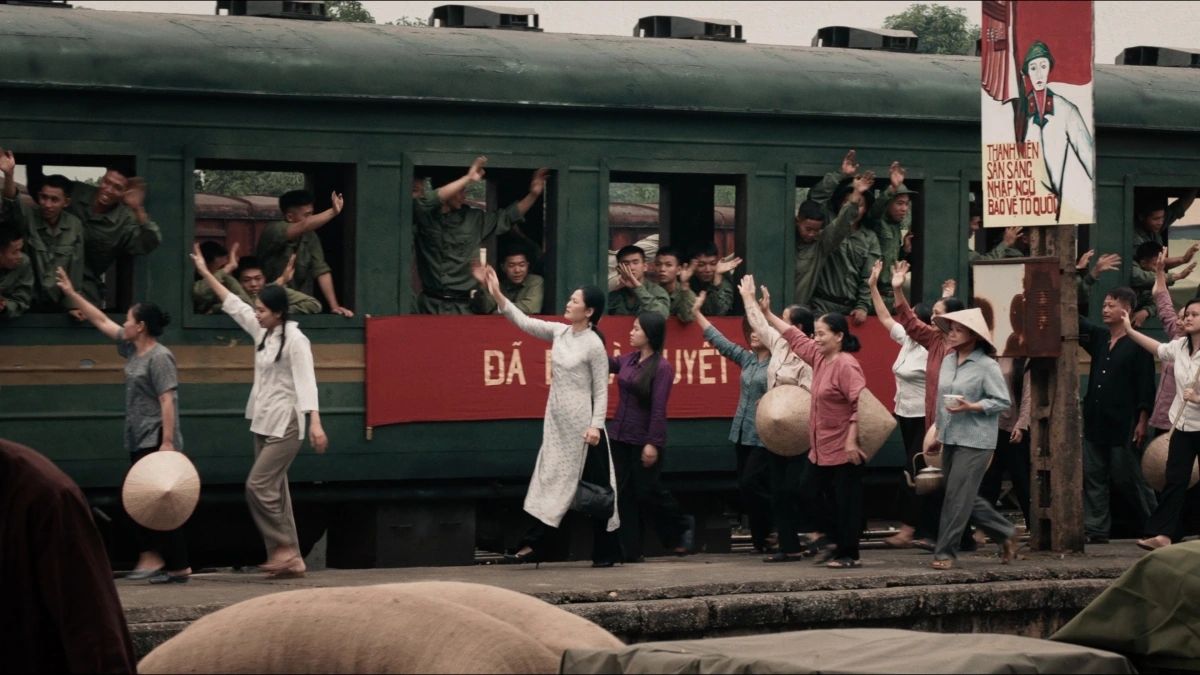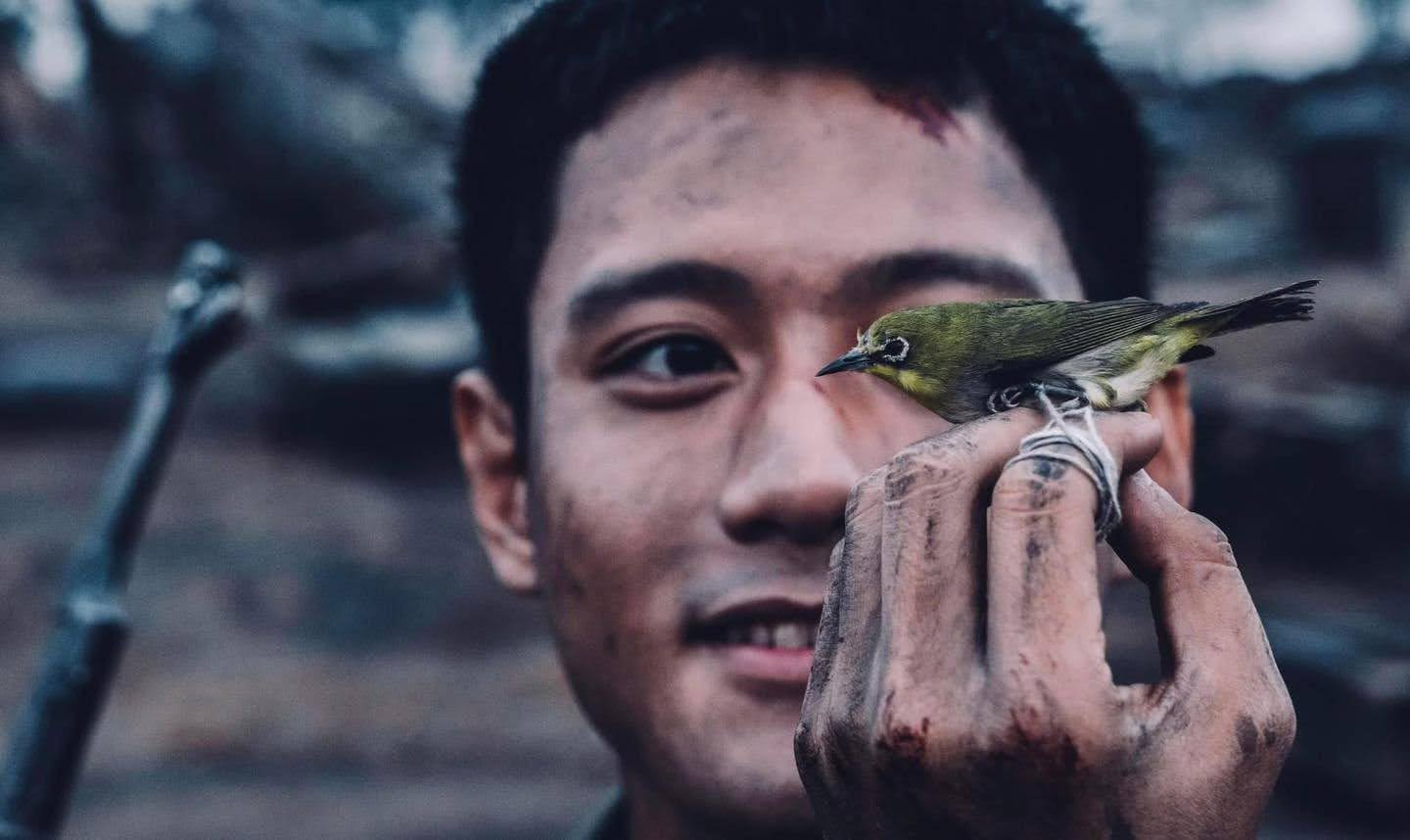When I watched Mưa Đỏ (Red Rain), I realized I was seeing something I had never encountered in Vietnamese state-produced war films before. For years, films in this genre had often relied on familiar narratives that portray southern soldiers in much simpler terms. Mưa Đỏ takes a different path. It dares to show both sides as fully human. Soldiers are not only what they fight for but also what they fear, what they long for, and what they leave behind.
The film is based on Chu Lai’s war novel of the same name. Chu Lai, himself a veteran, adapted his own work into the screenplay. That fact explains why the writing feels so layered, why the dialogue carries weight and nuance, and why the narrative avoids cliches. The novel was already a literary exploration of tragedy and humanity in war, and the film inherits that richness. What I appreciated most was that it does not simply deliver spectacle but asks me to look into the inner lives of those on both sides of the battlefield.
One scene that has stayed with me, perhaps more than any other, is the moment when Nông Văn Tạ, a platoon leader, chooses not to pull the trigger. He sees a photograph of his opponent’s wife and child and lowers his gun. Instead of striking, he hugs the rifle to his chest and cries like a child. I cried too. It was not only the performance but the cultural weight behind it. In Vietnam, Confucian culture places the family at the center of moral life. Even when the country was divided by war, that bond of family remained universal. To me, that moment conveyed the essence of what the film is trying to do: remind us that beyond ideology, every soldier is someone’s son, someone’s husband, someone’s father.

Phương Nam, who plays Tạ, delivers this with remarkable authenticity. He is a young actor, but his preparation shows his commitment. He reportedly trained to master the Thanh Hóa accent to make the role convincing and went through physical training to match the soldier’s hardship. His performance is one of the reasons why Tạ feels less like a character and more like a person I could have known.
The film’s core, though, lies in the story of two men: Vũ Kiên Cường, a young recruit from the North who had once been a music student in Hanoi, and Nguyễn Phúc Quang, a southern officer born in Huế. They are drawn into an unresolvable love triangle with Hồng, a nurse serving in the southern Liberation Army. This personal connection gives the story its emotional pulse. Yet the deeper tragedy comes from their mothers. One in Hanoi, one in Huế, both sense what is to come. For Cường’s mother, it is a mother’s intuition that her son will not return. For Quang’s mother, it is rooted in spiritual symbolism. These parallel arcs remind us that war shatters families everywhere, regardless of ideology.
As the story unfolds, Quang and Cường become tragic reflections of one another. I could feel the tension building as the film moved toward their inevitable confrontation. Quang, though framed as the antagonist, is never reduced to a villain. If anything, he emerges as a tragic hero. He shows courage, integrity, and empathy, and there were times when I found myself wishing the film gave him even more psychological depth. In one of the most heartbreaking lines of the film, Quang tells Cường that if not for the war, the two of them could have been good friends. That line stayed with me because it pierced the logic of the battlefield. It said aloud what many people must have felt in those years: that friendships, even lives, were destroyed by circumstances outside their control.

Cường’s journey is drawn more vividly. At the start, he is a gentle young man, a music student from a family that valued education. He enters the war with a kind of pure-hearted determination. But the further he goes, the more he loses. His comrades fall one by one, and he carries the weight of each death. I watched him unravel on screen, his inner world darkening, until by the end he is no longer the young man who once dreamed of music. And yet, at the final moment, when he has the chance to kill Quang, he does not. For me, that was the most powerful act of all. By sparing Quang, he asserted that war had not completely stripped away his humanity. Like Quang, he recognized that their enmity was manufactured by circumstances, not by choice.
The film does not glorify war. It acknowledges bravery, yes, but it does not use bravery as a way to erase suffering. Instead, it insists that the true meaning of war is tragedy. Watching Mưa Đỏ, I could not escape the sense that the film was made as a warning. Its message is that the future should never repeat the mistakes of the past.

This message is grounded in real history. Mưa Đỏ is inspired by the Battle of Quảng Trị Citadel, one of the bloodiest battles of the twentieth century. The siege lasted eighty-one days, and tens of thousands of soldiers on both sides lost their lives. In the film, that history is not told in numbers but in faces. The camera lingers on letters written to mothers, on photographs tucked into pockets, on hands shaking as they load rifles. These small details give life to the enormity of history.
As I reflected on the film, I realized how rare it is for a state-produced war movie to show such empathy to the other side. While it is told from one perspective, it still makes space for empathy compassion and understanding. It acknowledges that soldiers on both sides were sons, fathers, and loved ones who lived and died with conviction. In a country where memories of the war remain deeply personal, that willingness to show goodwill is a meaningful gesture.
I cannot deny that some viewers will find the film politically unsatisfying, because they think the scars of the war run too deep, and no film can reconcile all sides. But for me, Mưa Đỏ is valuable precisely because it does not try to solve those divides through rhetoric. Instead, it humanizes everyone it touches. The film resonates more as an elegy than a triumph.

As I left the cinema, I thought about what it must have felt like for those who fought at Quảng Trị, and for those who waited for them at home. I thought about the mothers in Hanoi and Huế, both sensing the same grief. I thought about the possibility, mentioned so briefly yet so painfully in the film, that enemies could have been friends in another life. Above all, I thought about how peace, something so easy to take for granted, is in fact priceless.
Mưa Đỏ is not a perfect film, but it is a courageous one. It represents a turning point in how Vietnamese cinema tells its war stories. For me, it was not only a cinematic experience but also a reminder of what war does to human lives. And that, I believe, is the most important contribution a film about war can make.
